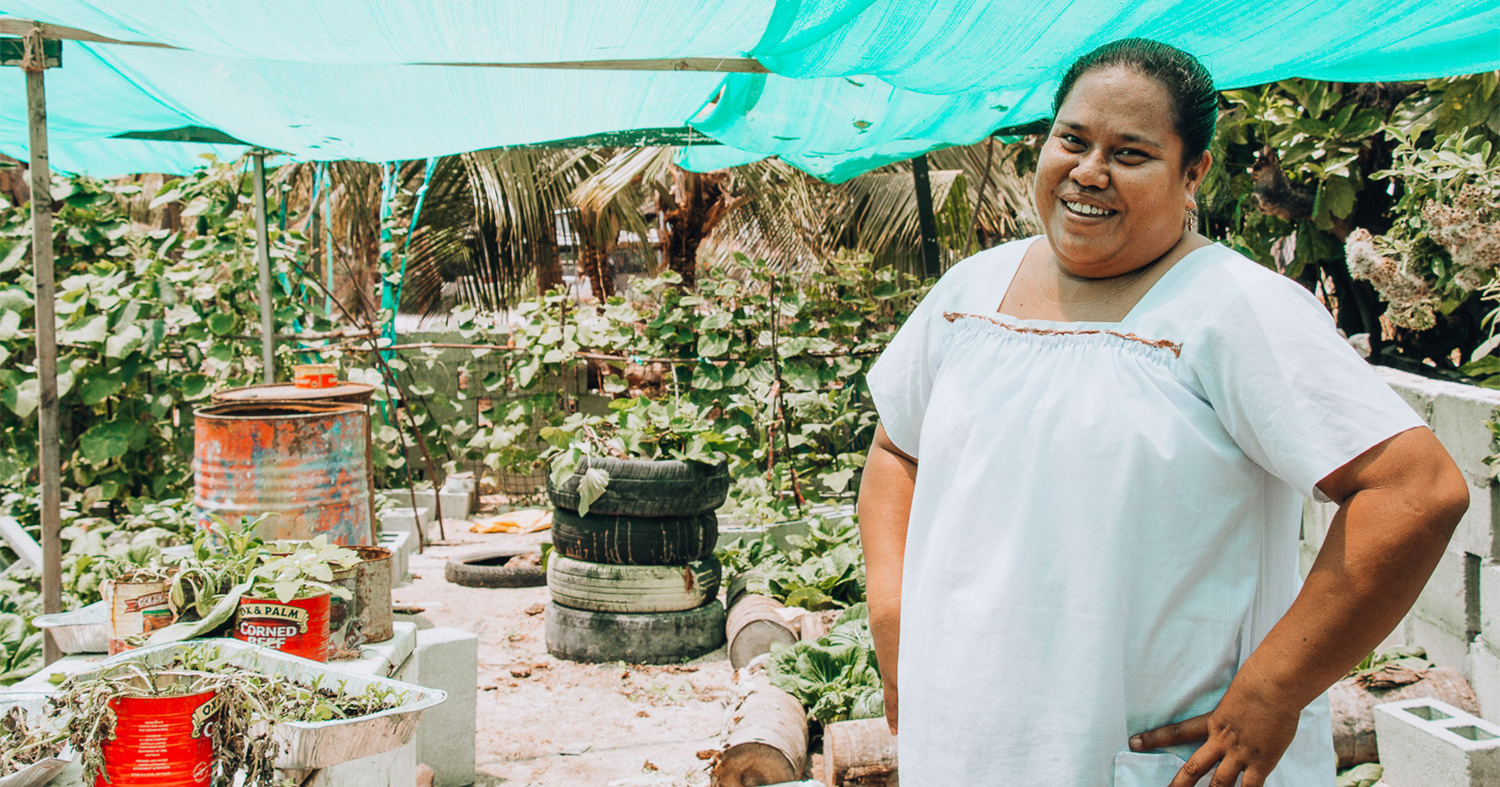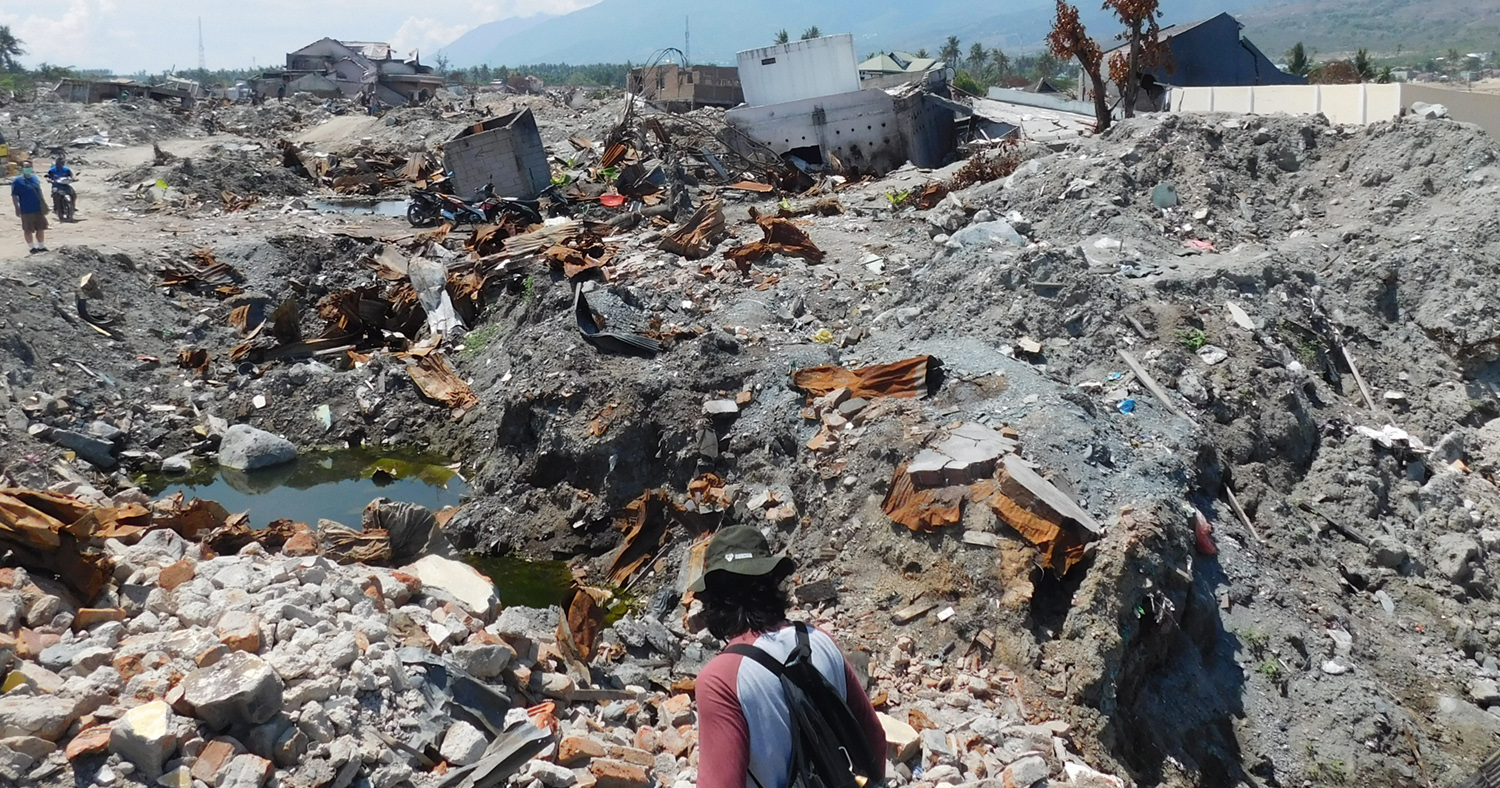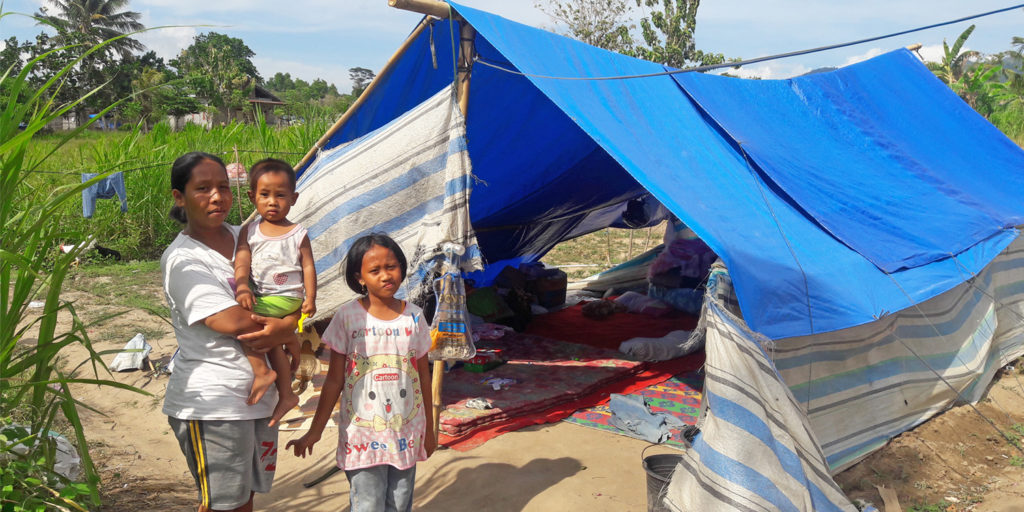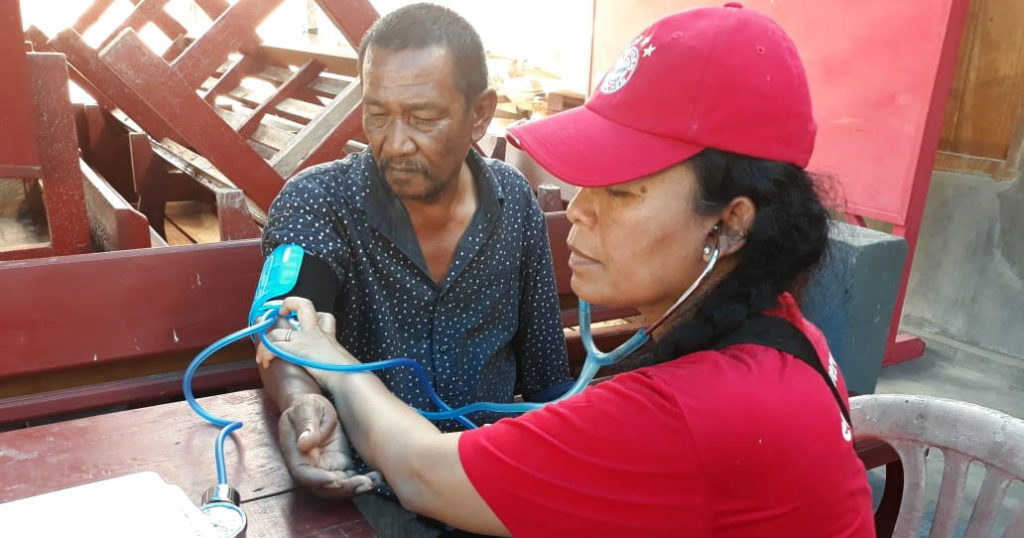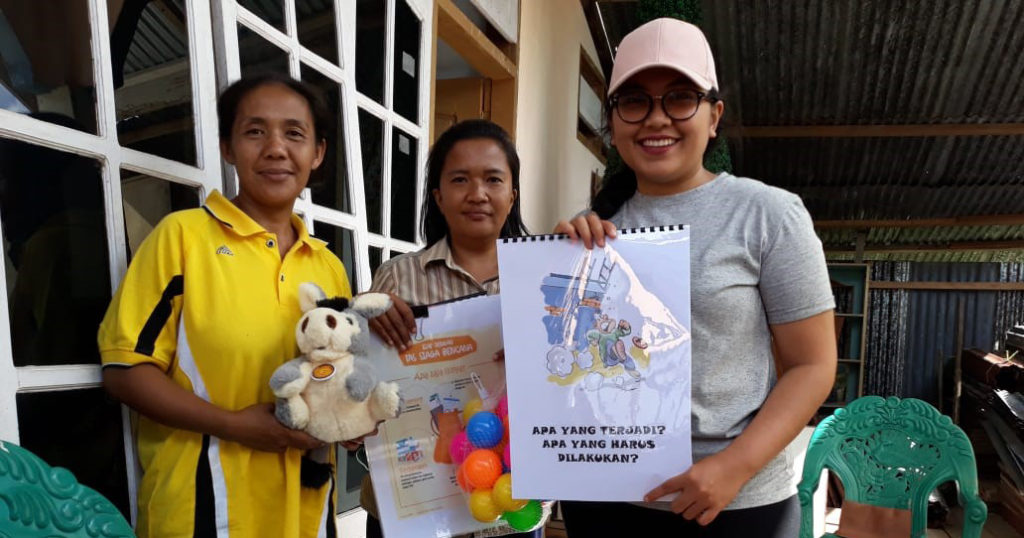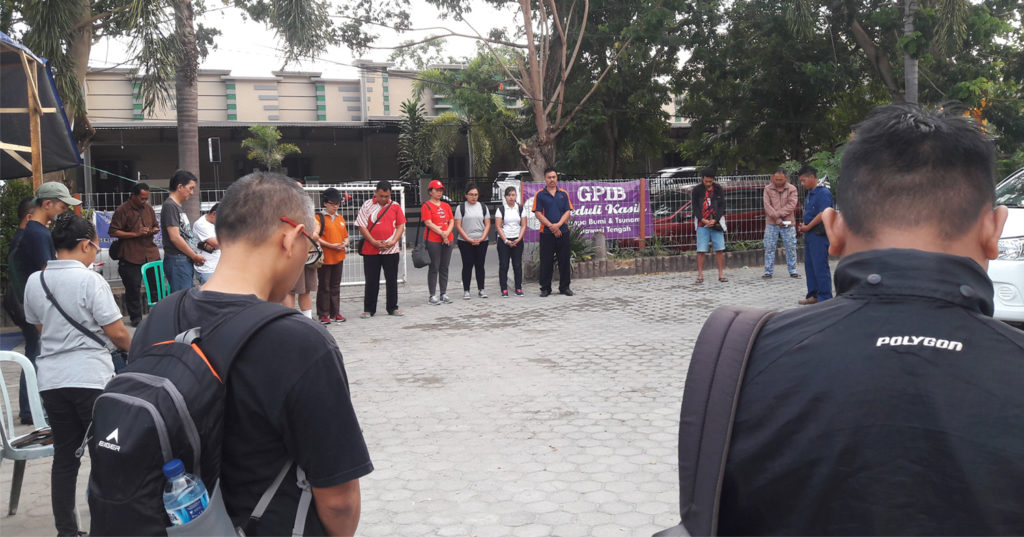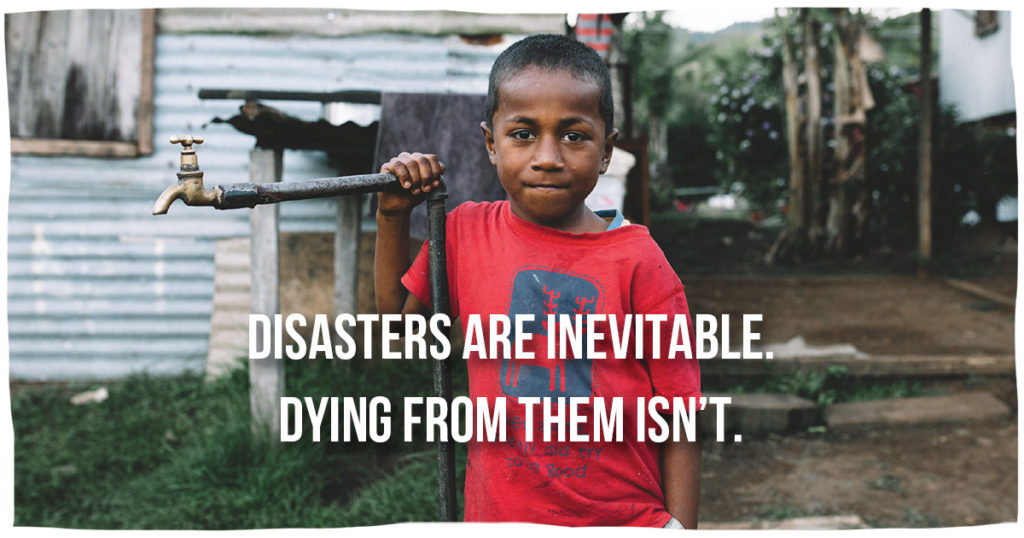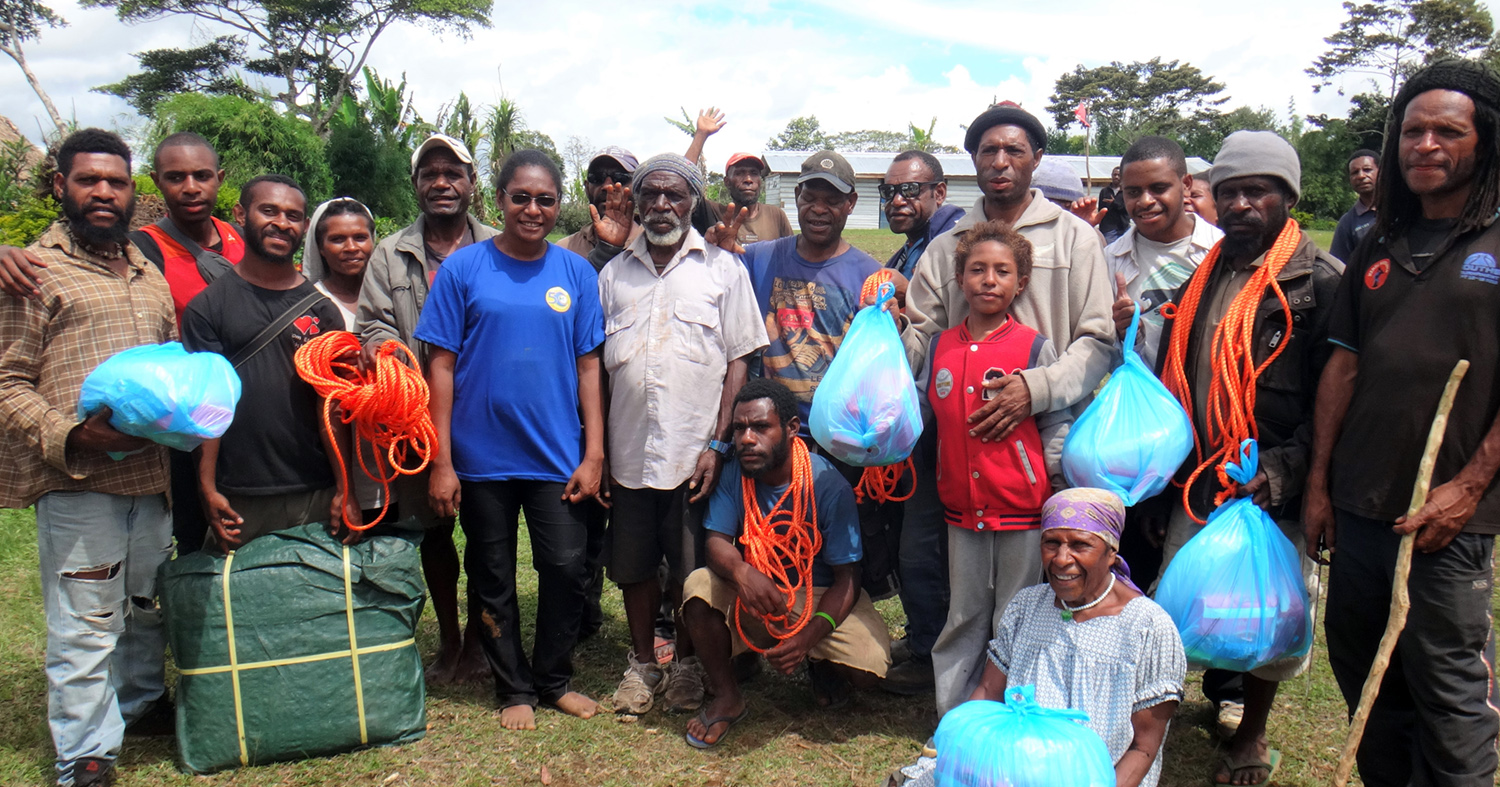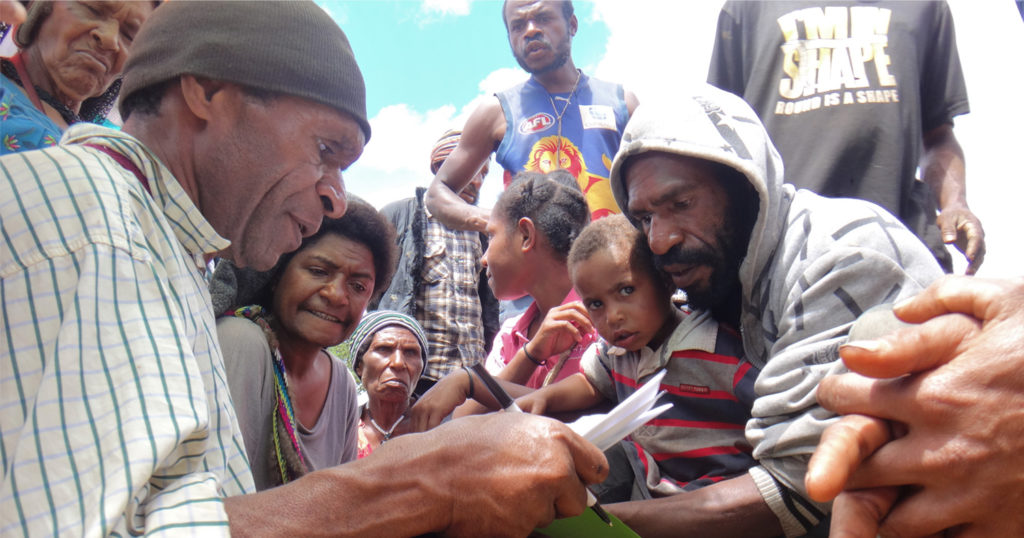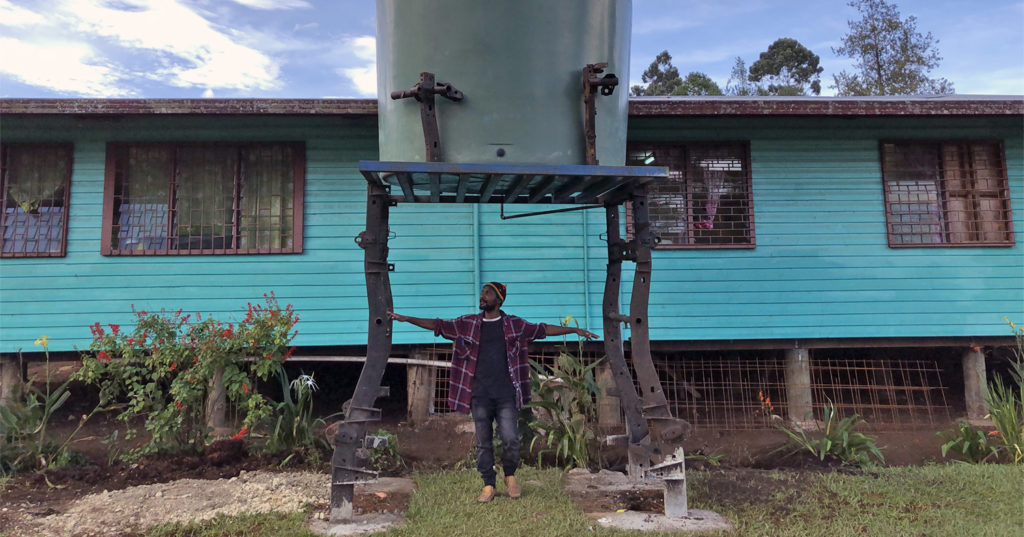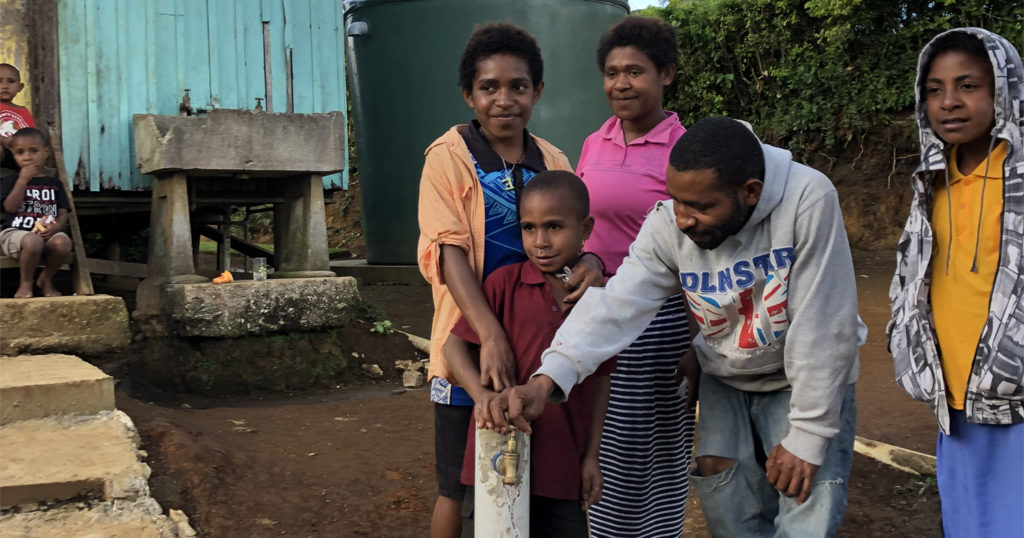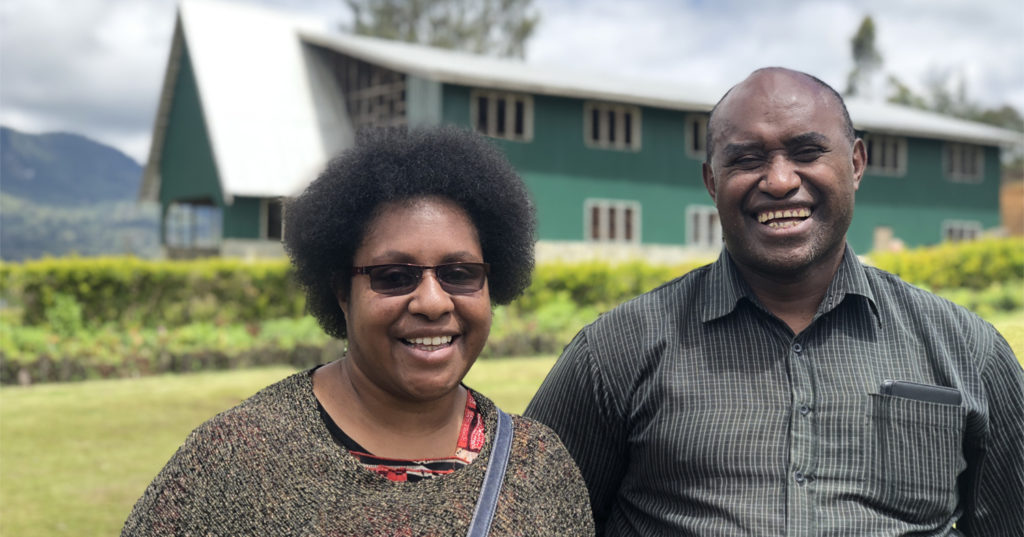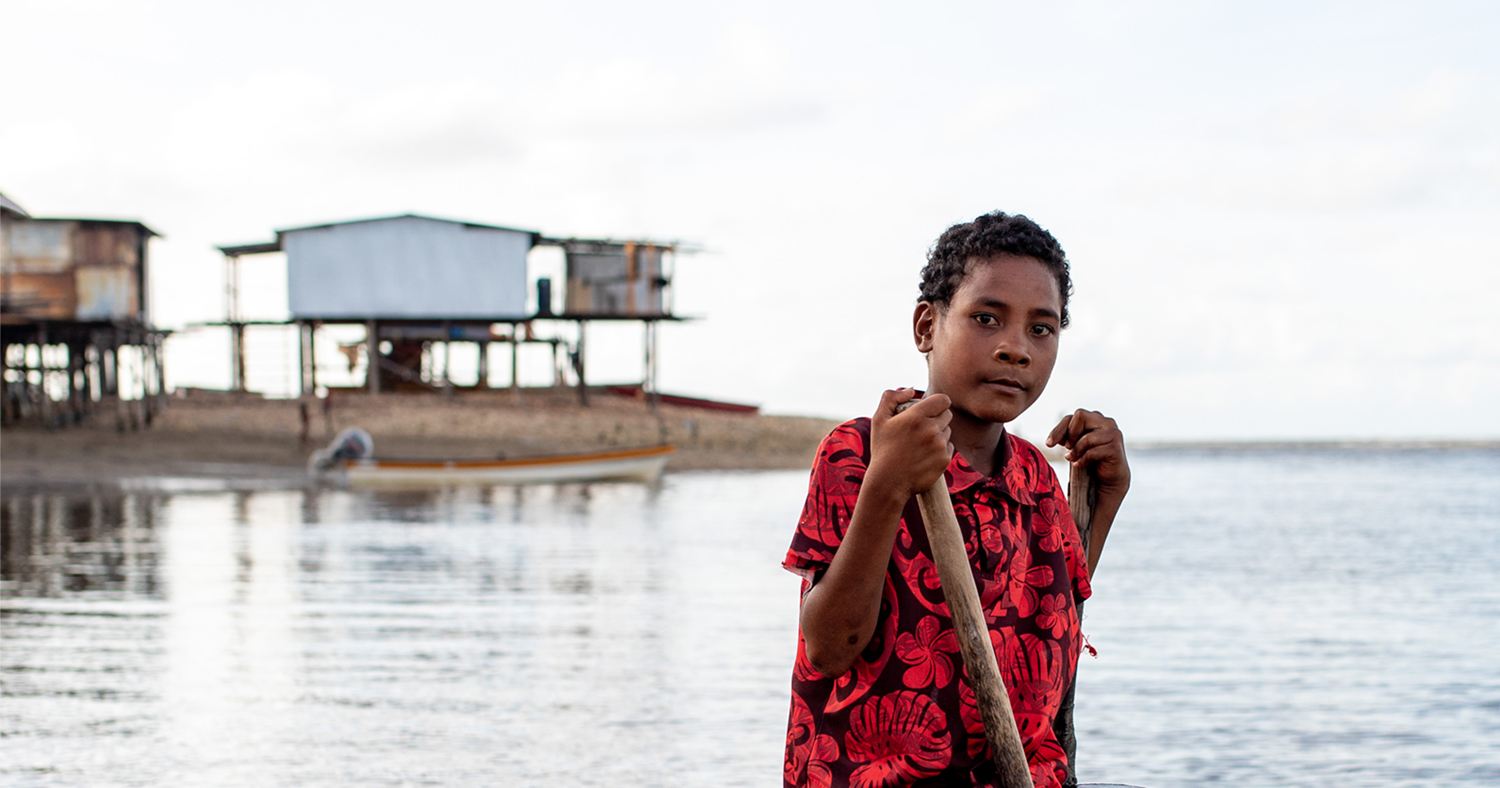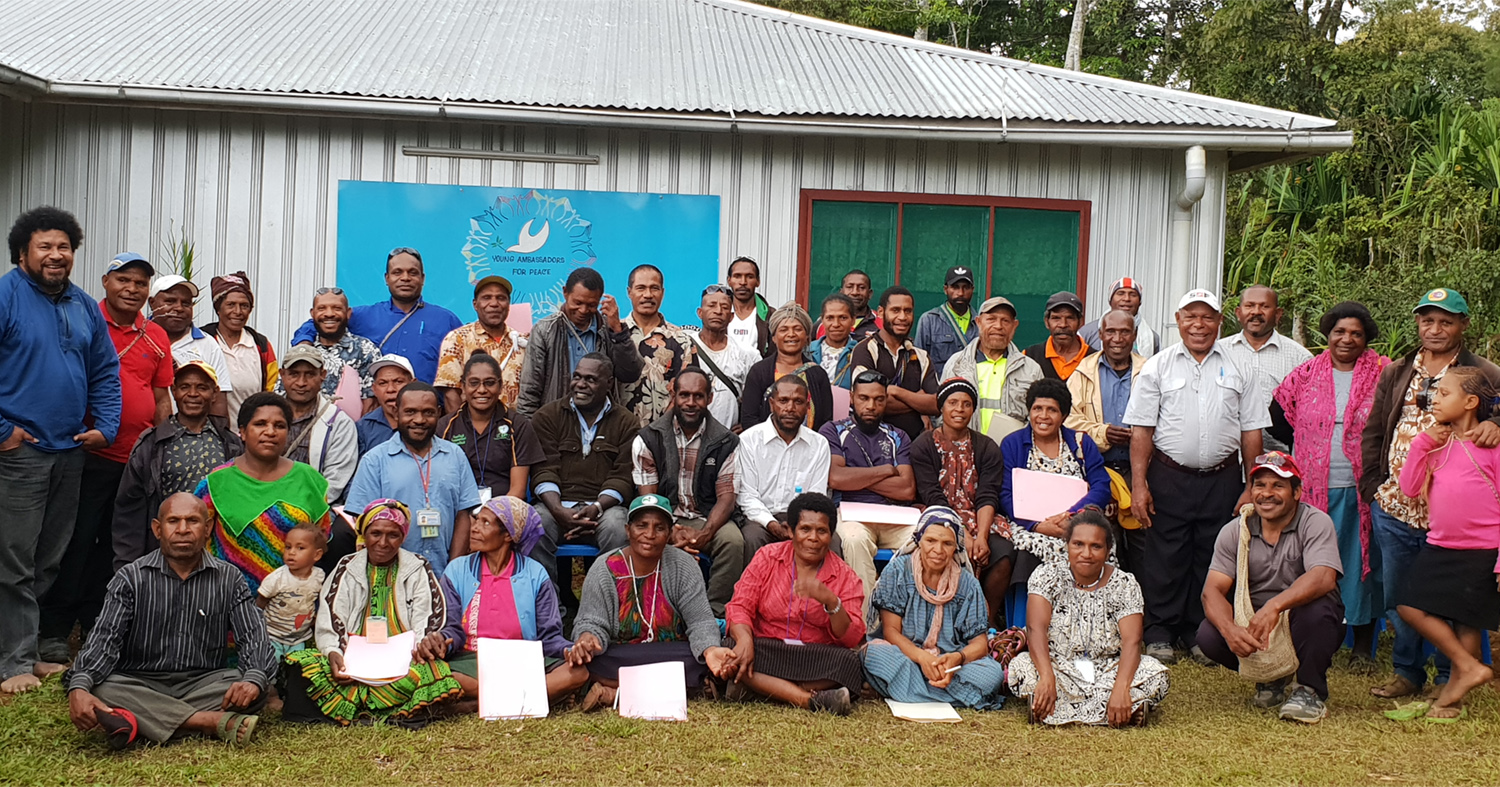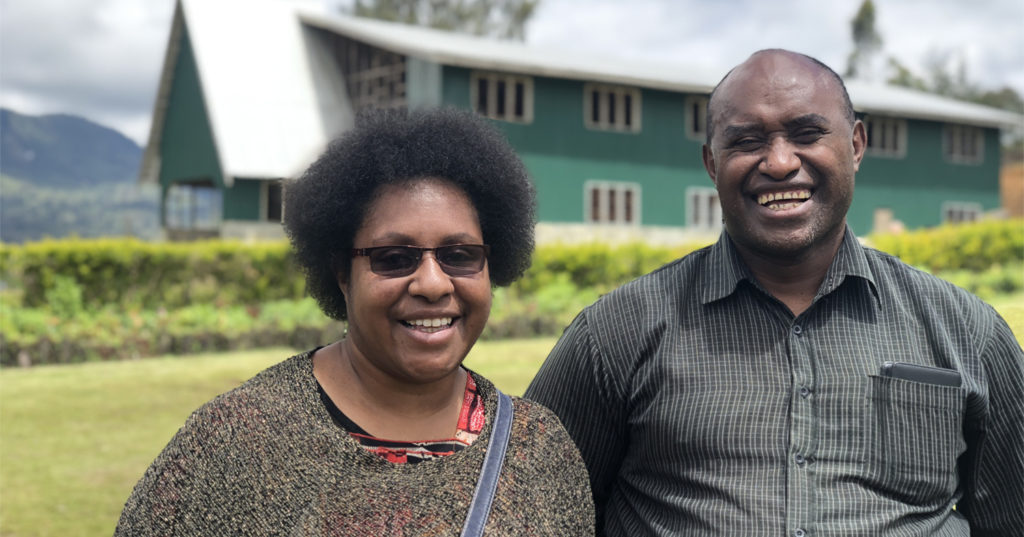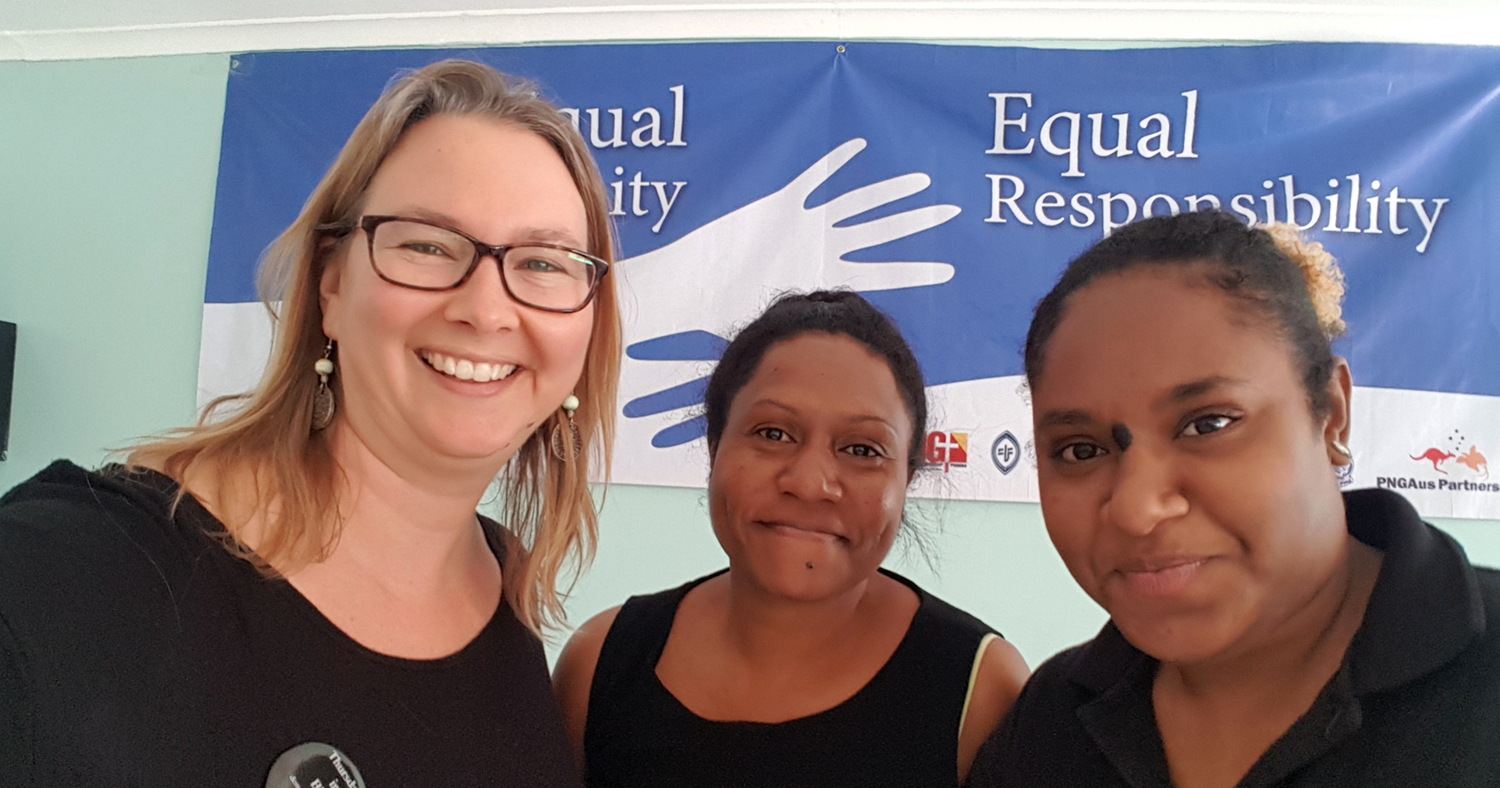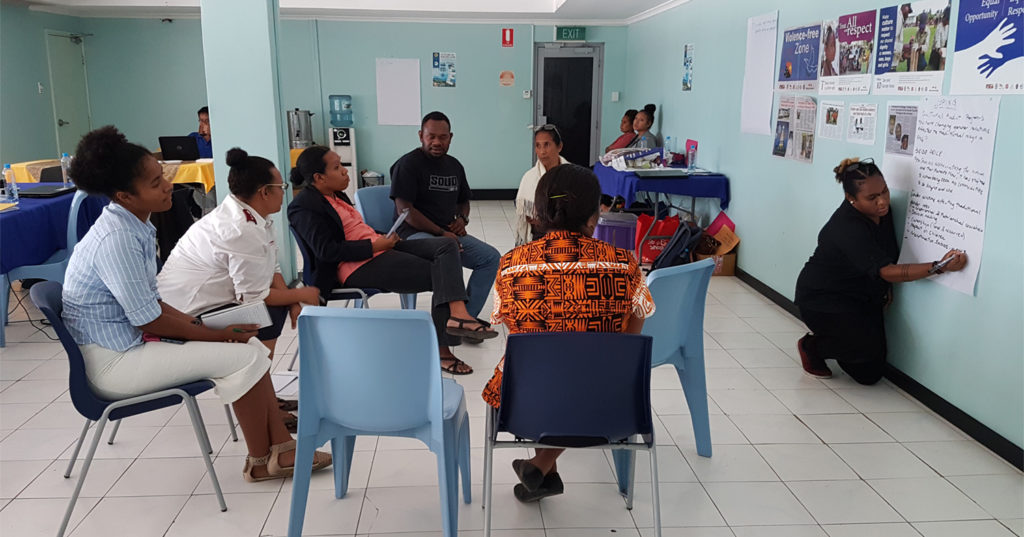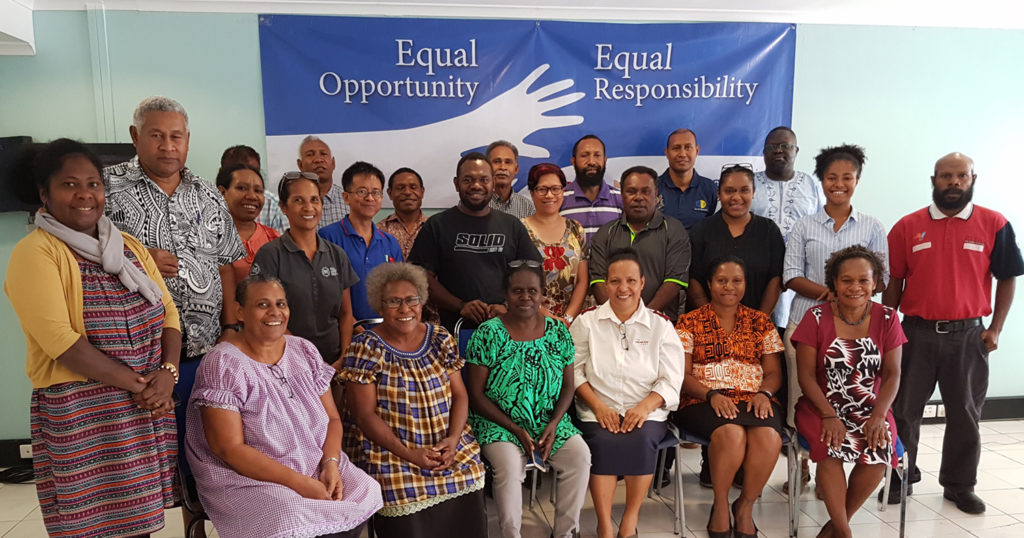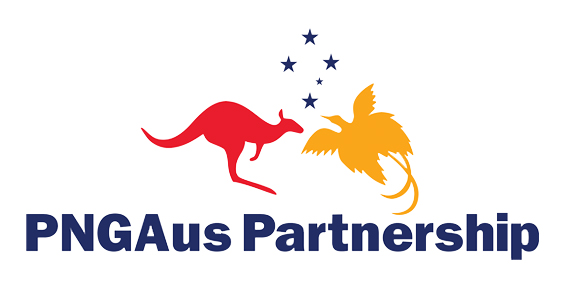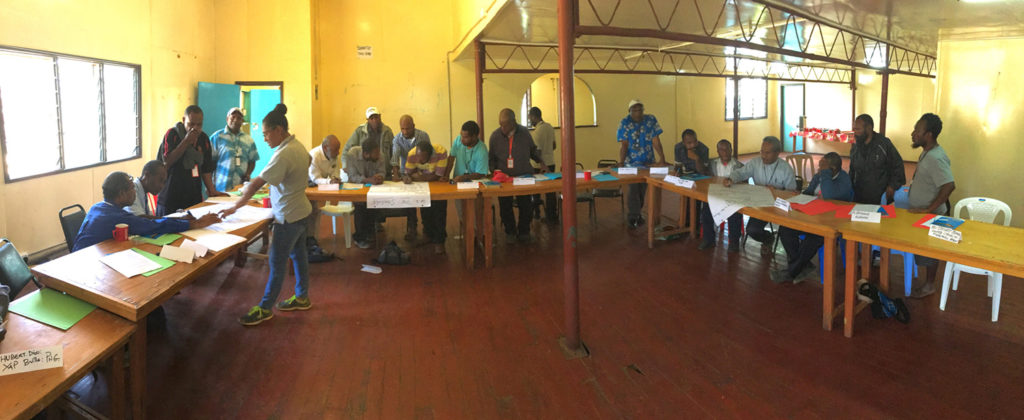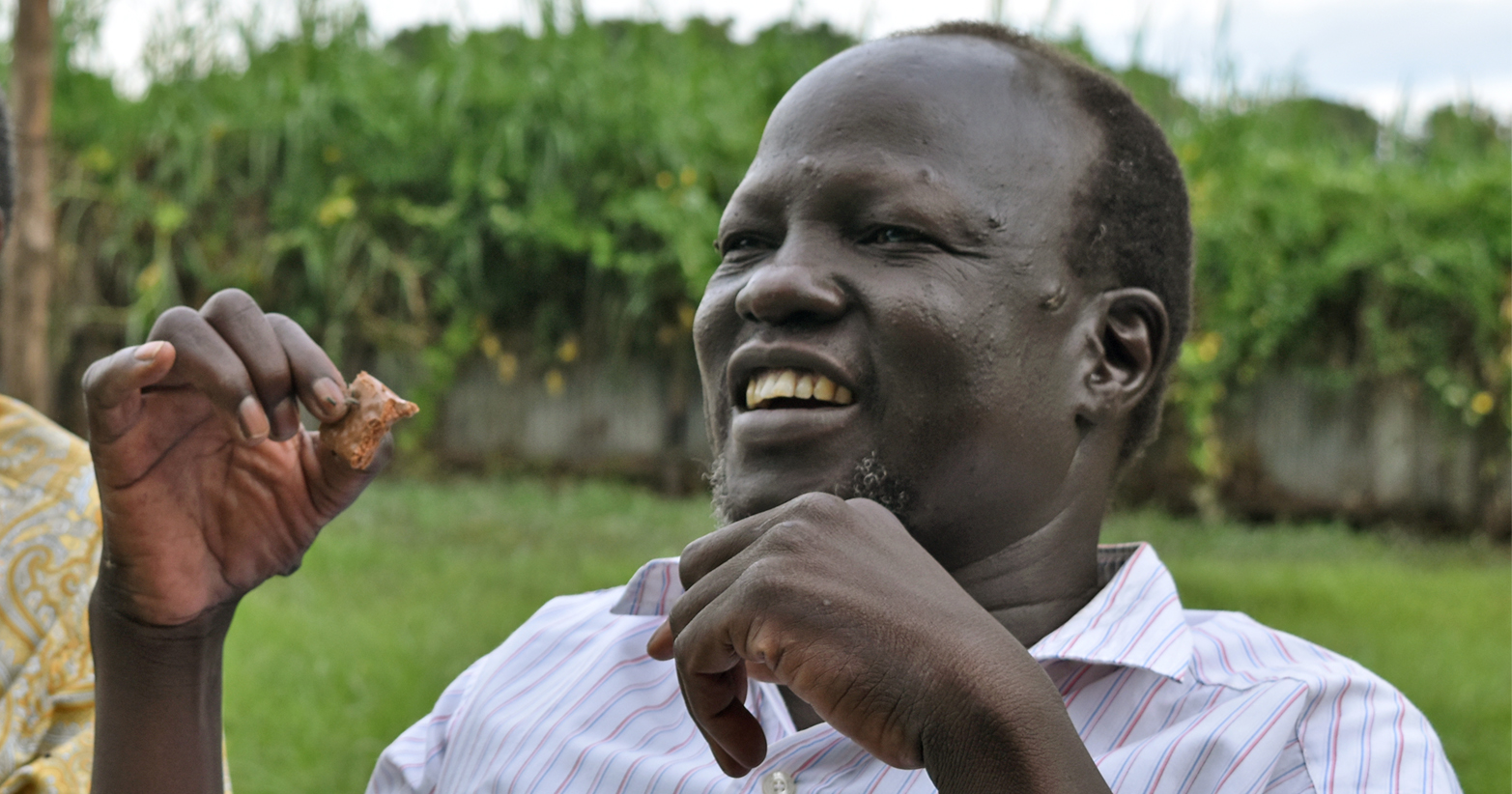Healthy families and safe communities in Kiribati
Project Update: Kiribati Safe Families, Healthy Communities
The Kiribati Safe Families, Healthy Communities project has gone through two phases.
In the first phase of the project, we worked with RAK (Reitan Aine ki Kamatu – Women’s Fellowship of the Kiribati Uniting Church) to support the establishment of raised vegetable garden beds through resources and training.
Kiribati women identified this as important for three main reasons:
1. Food security
With the increasing effects of climate change on their tiny islands growing food had become more and more difficult. With the rising sea levels, the fresh water table has become contaminated with salt water and is too brackish to grow most crops. Also, this sea-level rise has seen king tides and tropical depressions cause widespread regular flooding, damaging low level food crops.
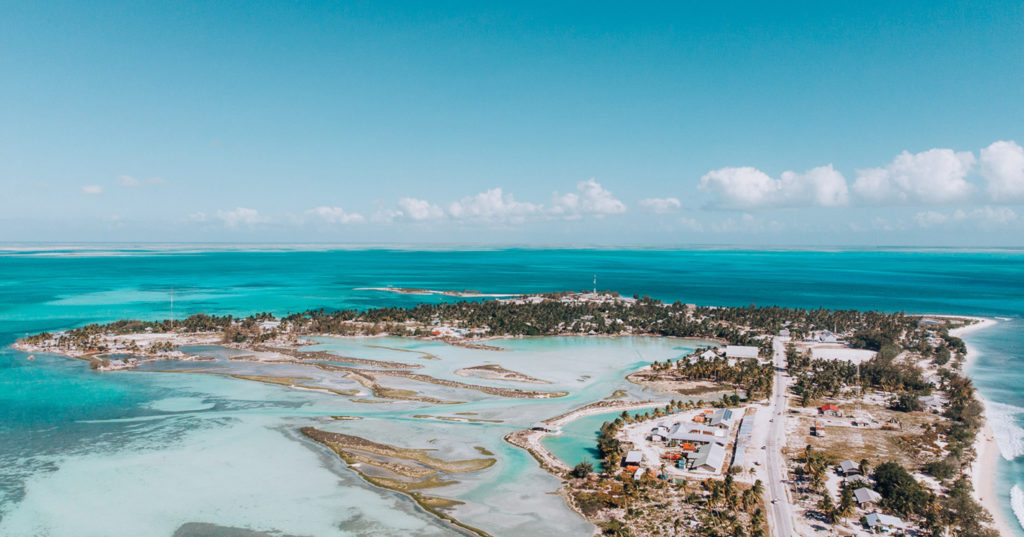
2. Improved health
As a result of the limited availability of fresh foods, people turn to the imported foods. These include a large diet of 2-minute noodles, excessively fatty cuts of meat (often deemed unsuitable for human consumption in Australia) and preserved sugary foods (as they last the long sea journeys to Kiribati). All this is resulting in national poor health and increased incidents of diabetes.
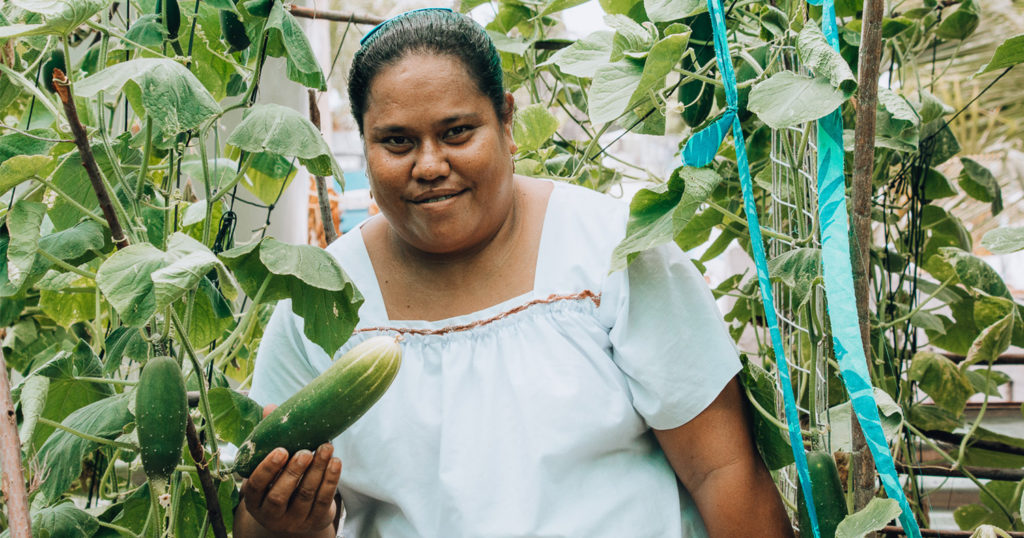
3. Increased usable income
If the families and communities can grow more of their own food, they will need to spend less on the expensive, poorly nutritious imported food, thus releasing more income into the family budget for school and medical fees.
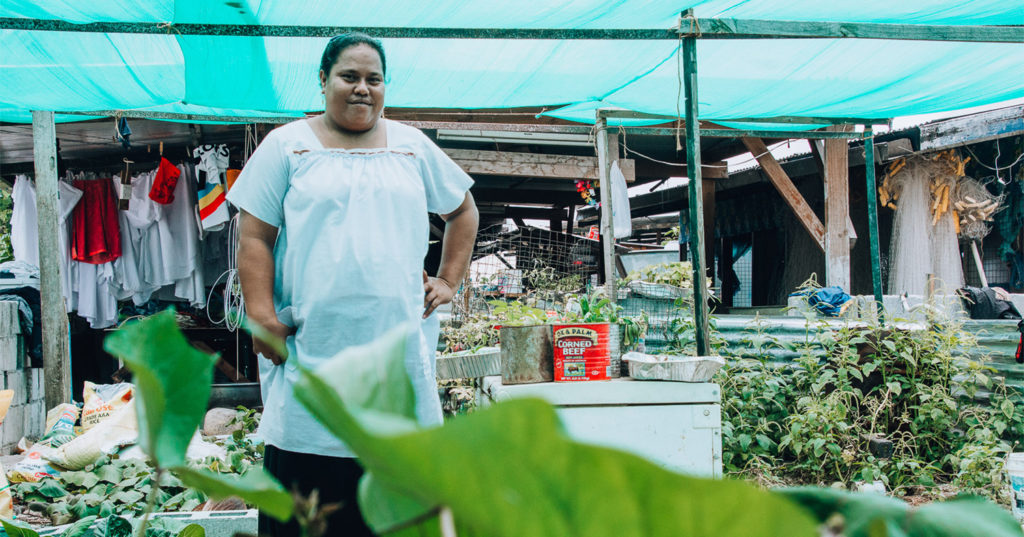
During the training activities on gardening, composting and healthy cooking (developed and conducted locally), conversations about healthy family and marriage relationships and the protection of women, girls and children were facilitated. The learning from these conversations highlighted specific community needs for families in Kiribati and our partners have been sharing their insights with us.
Gender-based violence is a huge issue in Kiribati and young girls are particularly vulnerable. With Kiribati being so isolated, there is a steady flow of foreign ships into the port bringing supplies. Among communities with little income and high unemployment, young girls are vulnerable to trafficking.
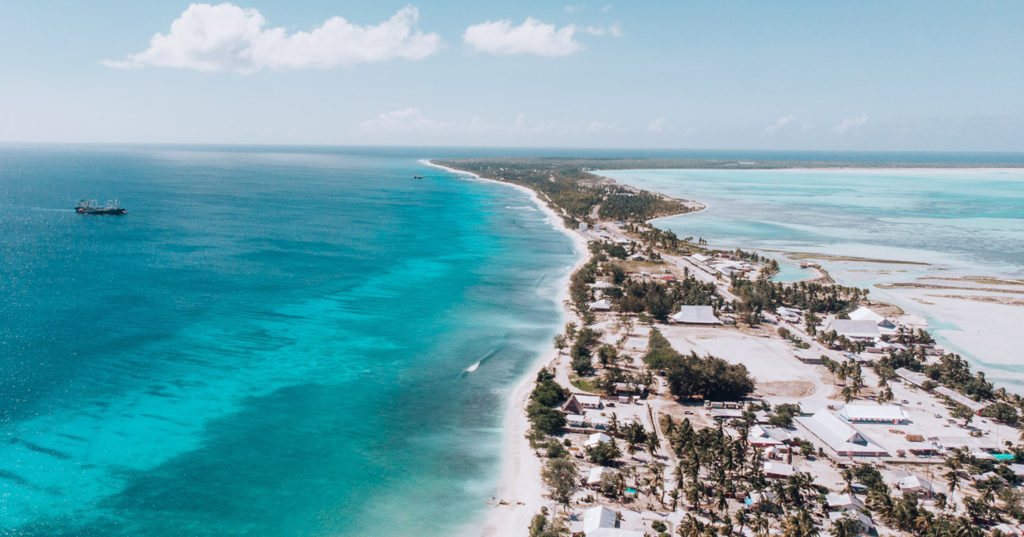
We are currently in the early stages of the second phase of this project with RAK and Kiribati Uniting Church (KUC), which currently consists of 2 main aspects:
1. Theological training and resourcing of Pacific Gender Equality Theology for leaders across the church, women’s fellowship and youth groups. The aim is to shift the patriarchal paradigm and equip the church and its leaders to be able to engage effectively in conversations about gender, domestic violence, child abuse and exploitation with families within their communities. Our partners have identified this as an important part of building safe families in Kiribati.
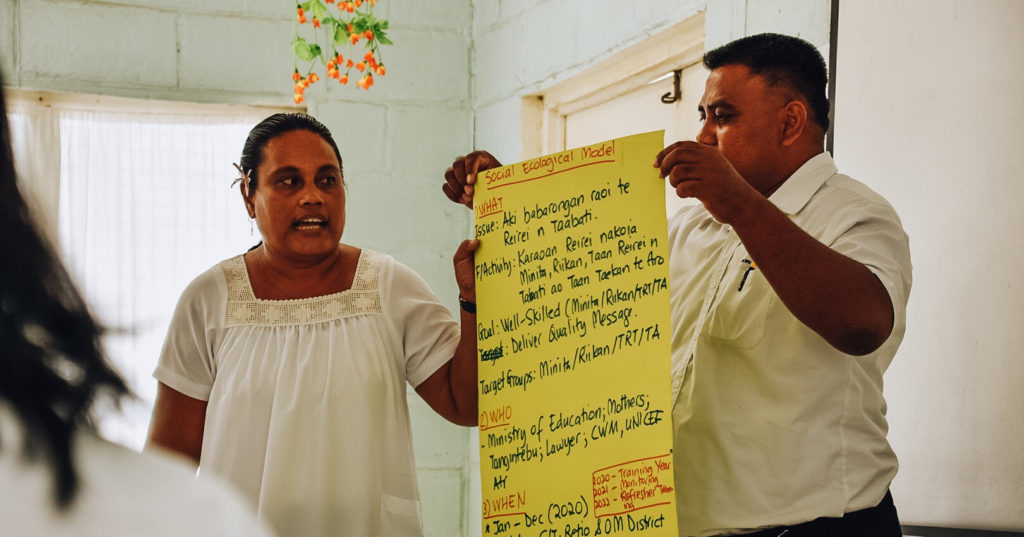
Gender Equality Theology workshop in Kiribati Feb 2019
2. Evaluation of the ‘healthy communities’ aspect of the project. We are working with our partners to identify the aspects of the garden phase that worked well and the reasons why it was less successful in some locations. We anticipate that after developing a better understanding of the factors that affect project impact, we can move to build on the foundations of food security and increasing people’s incomes, while recognising that it is both spiritual and physical needs.
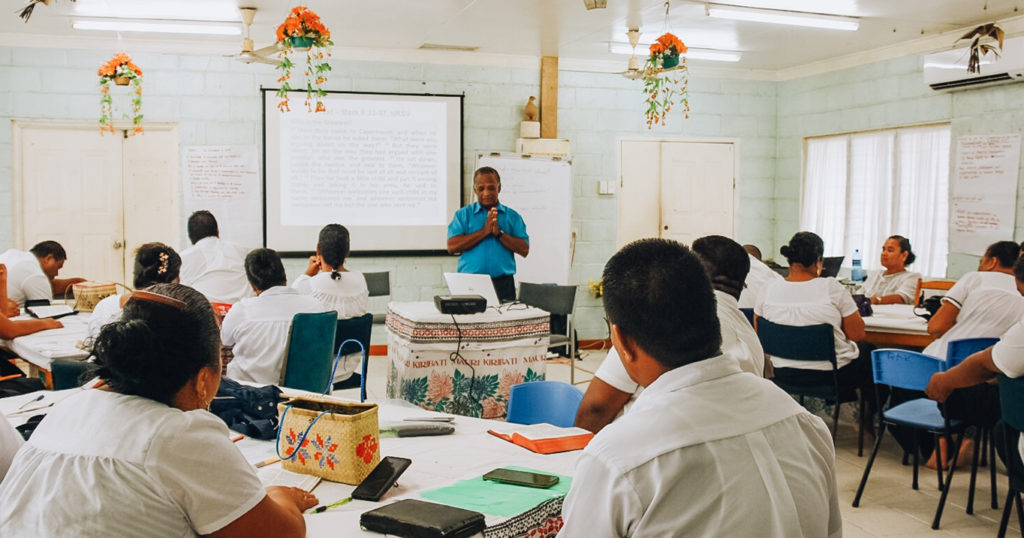
As the theological training component of the project is the most active right now, the Kiribati Safe Families, Healthy Communities project is now part of the Pacific Partnering Women for Change project. We will post updates on both aspects of the project as we gather information and take the learning forward with our partners in Kiribati.
RAK Project Coordinator Bairenga wanted to say thank you for the prayers and donations of UnitingWorld supporters for enabling the work of our partners.
She recorded the below in April 2019.
Thank you from Kiribati! from UnitingWorld on Vimeo.
Thank you to everyone who has supported this project!
All photos by Natasha Holland, International Program Manager, UnitingWorld

